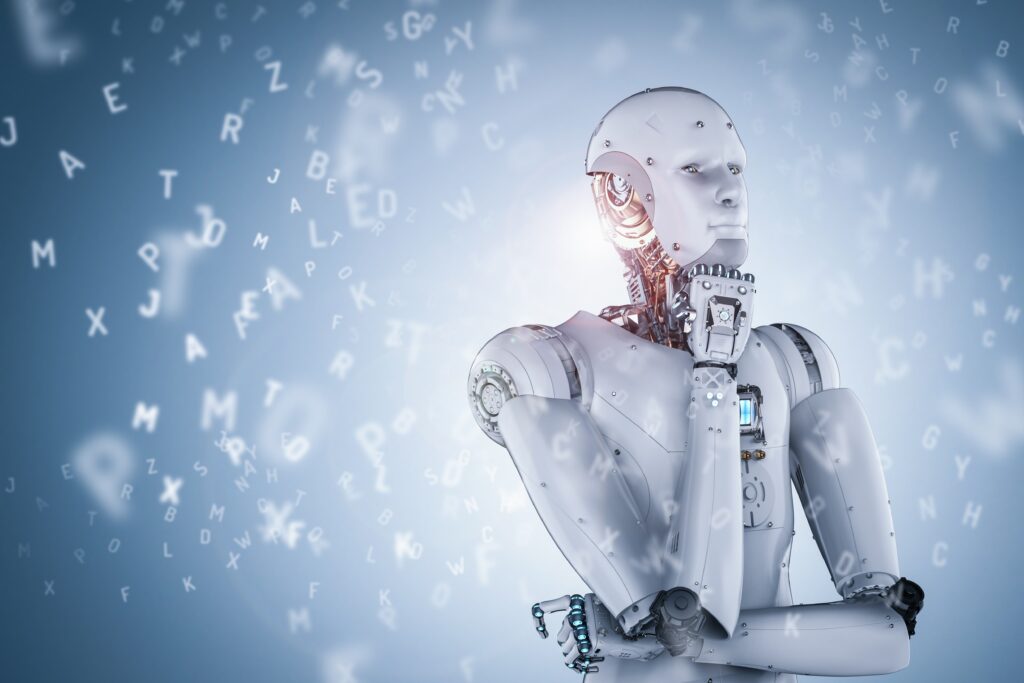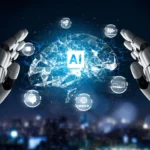Artificial Intelligence (AI) has rapidly advanced from a concept in science fiction to a transformative force in the real world, driving innovation across industries such as healthcare, finance, transportation, and entertainment. While AI promises significant benefits, its growing capabilities also raise pressing ethical concerns that cannot be ignored. As AI systems become more integrated into our daily lives and decision-making processes, it’s crucial to examine the potential risks and challenges that come with its widespread adoption.
In this article, we will explore the key ethical concerns surrounding artificial intelligence, from issues of bias and privacy to the implications for employment and accountability.
1. Bias and Fairness
One of the most prominent ethical concerns regarding AI is bias. AI algorithms learn from vast datasets, and if these datasets contain biased or discriminatory information, the AI systems may inadvertently perpetuate or even amplify those biases. For example, an AI system trained on historical hiring data might learn to favor certain demographics, such as men over women, or individuals from particular racial backgrounds. Similarly, AI models used in law enforcement or the judicial system might exhibit bias towards minority groups if they are trained on biased data.
- Discriminatory Outcomes: In areas like hiring, lending, and criminal justice, biased AI systems could lead to discriminatory outcomes that disproportionately affect vulnerable populations, such as women, racial minorities, or people with disabilities.
- Reinforcing Inequality: AI can exacerbate existing societal inequalities, as algorithms may be used to justify decisions that negatively impact marginalized groups. For instance, biased predictive policing tools might target certain neighborhoods more frequently, leading to over-policing and racial profiling.
To address these issues, it is essential to ensure that AI systems are trained on diverse, representative datasets and that they undergo regular audits to detect and mitigate biases. Moreover, transparency in AI decision-making processes is crucial to ensure accountability and fairness.
2. Privacy and Data Security
The rise of AI is closely linked to the growing collection and analysis of personal data. Many AI systems rely on vast amounts of data to function effectively, including sensitive information about individuals’ behaviors, preferences, and even health conditions. This raises significant privacy concerns.
- Surveillance: AI technologies, such as facial recognition and tracking algorithms, can be used for mass surveillance, leading to concerns about the erosion of individual privacy. Governments, corporations, or even malicious actors could exploit these technologies to monitor people’s movements, activities, and communications without their consent.
- Data Breaches: As AI systems process large volumes of personal data, they become attractive targets for hackers. A breach of an AI system could expose sensitive information, leading to identity theft, financial fraud, or other harmful consequences for individuals.
- Consent and Control: With the proliferation of AI-driven services, individuals often have limited control over their data. Many people are unaware of how their personal information is being used by AI systems, raising questions about the ethics of informed consent and whether individuals have the right to opt out of data collection.
To address privacy concerns, AI systems must be designed with strong data protection measures, ensuring that personal information is handled responsibly and securely. Additionally, regulations such as the General Data Protection Regulation (GDPR) in the European Union provide a framework for protecting users’ privacy rights and ensuring that data is used transparently and ethically.
3. Job Displacement and Economic Impact
As AI continues to evolve, it has the potential to automate a wide range of jobs, particularly those that involve repetitive tasks. While automation can increase efficiency and reduce costs, it also raises significant concerns about job displacement and the future of work.
- Unemployment: Many industries, from manufacturing and retail to customer service and transportation, are already adopting AI-driven automation. As AI systems take over tasks traditionally performed by humans, there is a risk of widespread unemployment, particularly in sectors that rely heavily on manual labor.
- Economic Inequality: The displacement of jobs by AI could exacerbate existing economic inequalities. Workers who lose their jobs to automation may struggle to find new employment, especially if they lack the skills required for more advanced positions. This could lead to greater income inequality and social unrest.
- Reskilling and Education: While AI will undoubtedly create new job opportunities in fields such as data science, robotics, and AI development, many workers may not have the skills or education necessary to transition into these roles. Ensuring that workers have access to reskilling programs and education will be critical to mitigating the negative economic impacts of AI.
Governments and organizations must work together to implement policies that support workers in transitioning to new roles and ensure that the benefits of AI-driven economic growth are shared more equitably.
4. Autonomy and Accountability
As AI systems become more autonomous, the question of accountability becomes increasingly important. Who is responsible when an AI system makes a decision that causes harm or leads to undesirable outcomes?
- Autonomous Decision-Making: AI systems, especially in areas like healthcare, transportation, and finance, are making decisions that have a direct impact on human lives. For instance, self-driving cars must make split-second decisions in emergency situations. If an accident occurs, who is held accountable—the AI system, the developers, or the manufacturer?
- Lack of Transparency: Many AI models, especially deep learning algorithms, operate as “black boxes,” meaning that their decision-making processes are not easily understood by humans. This lack of transparency makes it difficult to determine how decisions are made, which can hinder efforts to assign accountability in cases of failure or harm.
- Ethical Decision-Making: AI systems are often programmed to optimize for certain outcomes (e.g., minimizing risk or maximizing profit), but these goals may not always align with ethical considerations. For example, an AI system used in criminal justice might prioritize efficiency over fairness, leading to biased or unjust decisions.
To address these concerns, it is important to develop frameworks for AI accountability, including clear regulations and guidelines for developers and organizations using AI. These frameworks should ensure that AI systems are transparent, auditable, and aligned with ethical principles.
5. Weaponization and Military Use of AI

AI has the potential to revolutionize warfare, but its use in military applications raises significant ethical concerns. Autonomous weapons systems, such as drones and robots, could be used in combat to carry out missions without human intervention. While AI-powered systems can make decisions more quickly and accurately than humans, they also introduce new risks.
- Autonomous Weapons: There is a growing concern that AI could be used to develop weapons that operate without human oversight, making decisions about targeting and engagement autonomously. This could lead to unintended escalation, errors, or violations of international law.
- Ethical Warfare: The use of AI in warfare raises questions about the ethics of delegating life-and-death decisions to machines. Should machines be trusted with the power to decide who lives and who dies? Can AI systems be programmed to comply with ethical principles such as the Geneva Conventions and the rules of proportionality and necessity in warfare?
Global agreements and treaties may be needed to govern the use of AI in military applications and ensure that AI technologies are not misused in ways that violate human rights or international law.
Conclusion
While AI holds immense promise in transforming industries and solving complex global challenges, it also presents serious ethical concerns that require careful consideration. Issues of bias, privacy, job displacement, accountability, and the potential weaponization of AI must be addressed if we are to fully realize the benefits of AI in a responsible and ethical manner.
The development and deployment of AI must be guided by principles of fairness, transparency, and accountability, ensuring that these technologies are used for the greater good. By fostering collaboration between governments, organizations, and ethicists, we can help ensure that AI evolves in a way that aligns with our shared values and enhances society as a whole.




Your comment is awaiting moderation.
Hello.This post was really fascinating, particularly because I was searching for thoughts on this matter last Thursday.